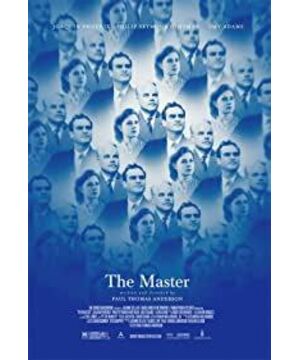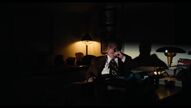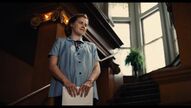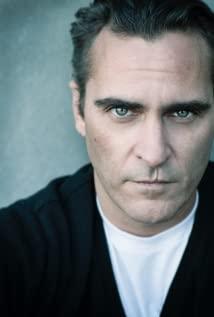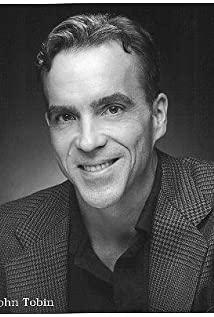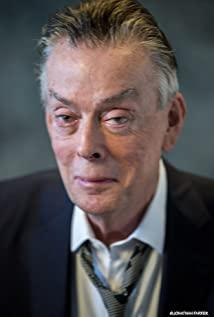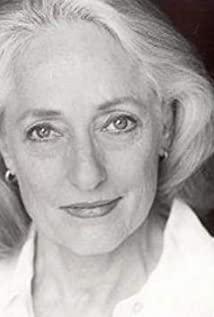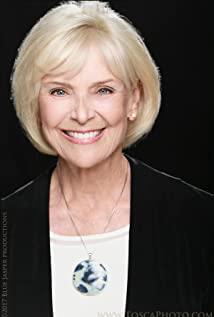(War) Trauma: The director PTA publicly stated that this is a World War II movie, but personally feel that the focus should be on trauma rather than war. Because Freddy’s trauma not only comes from the war, but from different periods and levels of life. From this perspective, although the master is a liar, he healed Freddy’s trauma to a certain extent, and ( Unconsciously) Let him go from a blind follower to an independent thinking person. If you look at it this way, the ending of the movie should actually be ascending. Freddy has been escaping with a serious tendency of self-destruction. In the end, the reason why he dared to face his past indifferently should be attributed to the master, but the master is actually not relying on his so-called theory to cure him, but he found himself Freddie is actually the same lonely, so what heals Freddie is actually something with universal feelings, trust, friendship, and hope for good (that is, the master’s religious philosophy, although the master proved to be A liar, but his misleading has given Freddy the motivation to be healed at a certain period of time). Therefore, if you look positively, the healing process of the movie should not be that the master healed Freddy's war wounds with his own theories, but the master used his universal personality to heal Freddy's universal wounds from the world. Negatively, the film is skeptical of this simple method of psychoanalysis. Religion: I personally feel that the film has little to do with religion itself, and the allusions to Scientology are not purely personal attacks. To a certain extent, the film reflects PTA's views on the crisis of modern people's beliefs. In "Magnolia" and even "The Blood Is Coming", PTA's attitude towards God is awe-inspiring and affirms the healing of this mysterious power for humans ("Magnolia" shows the hope that human pain may be healed , "Blood is Coming" shows the terrible result of human beings deviating from God), but in this film, the master is finally proved to be a liar, and his followers are either villains (wife, son, son-in-law who are in favor of fame and fortune). ), they don’t believe in the master’s theories, but they need the benefits of the master, or they choose to accept it backwards (the believer Helen questioned at the end, but eventually succumbed to the master’s anger), in fact, they can represent reality to some extent There are two religious forces in the society, the politician-style pyramid sellers who seek fame and the fanatics who seek self-comfort. And Freddy to some extent represents a state above the two, truly possessing the ability to think, and becoming a person who dares to make choices for his own principles and bear the consequences. So, from this perspective, Freddy’s healing process might look like this: succumb to animality People-people who succumb to social authority (hypocritical beliefs, patrilineal authority)-people who have the ability to think independently. Perhaps, when the master told Freddy at the end, "If you find a way of life, you don't have to serve any master, you must tell me, because you will be the first person in history", he has already hinted at the director. The intention of Lancaster's master name is just a cover, and Freddie finally became the master of his own destiny. Moreover, technically speaking, what cures Freddy is more a kind of self-suggestion psychotherapy, which has nothing to do with religion. Although Freddy has reached a certain degree of reconciliation with the past life, but in religion In the context of (Christian), he is far from being a worthy person. Loneliness and freedom: The relationship between Freddie and the master also has multiple angles. Before they broke up, they were friends, father and son, master and servant, master and believer, and even had a certain homosexual tendency. A major background that constitutes this complex intimacy is that the two people are lonely. Freddie has long been exiled from society. Although the master has echoed a hundred responses, he has never had a confidant. His doctrine is not so much his belief in explaining the world. It is said that it is his tool to seek fame and fortune, so he will change his proposition based on reality. Therefore, the master is actually a person who is shackled by worldly fame and fortune. The concentrated manifestation of this shackle is his wife Peggy, this woman with strong desire for control, and everything she is passionate about, is actually the real reality mapping of the master, although The master keeps saying that he wants to realize human freedom. In fact, he has long been shackled by the numerous secular worlds, and is always trapped by social attributes (materialized as a master's wife who is keen on fame and fortune, has a desire for control and is highly aggressive). This may explain why the master has a soft spot for Freddy. First, he hopes to prove the value of his doctrine by curing this hopeless beast; second, perhaps deep in his heart, he has an infinite yearning for Freddy. The fearless sense of freedom in Reddy. Correspondingly, Freddy’s role for masters is actually two-way. First of all, the treatments of those masters who were once regarded as holy laws have been reduced to the means for him to flirt with his female partners during sexual intercourse, and it seems that the masters did not. Healed Freddy as a fully socialized person, and in the end he still had nothing to do, drunk and lustful. But on the other hand, Freddie was indeed cured. He went from a passive resistance, fearless animalized person to an easy-going, calm and peaceful person with independent thinking and choice ability. This kind of transformation It is indeed given by the master. Therefore, perhaps the master will always live in a masked world and talk to himself, but Freddie has become a truly free person deep in the master’s heart, replacing the master. The teacher lives freely. Therefore, I personally think that the real master in the film refers to Freddy rather than Lancaster. In this case, the separation of the two in the UK at the end of the movie can be explained in this way. Emotionally, Lancaster taught Freddy the ability to perceive again, so he would go to the UK to visit him thousands of miles away and treat himself to him. The worry turned into the dream master's plea for his own help. Rationally, Freddie, who had regained himself, saw through the true face of the master and others. He finally gave up the trust and emotion that the master gave him and chose to be a lonely but free person. In the end, Lancaster can only become a lonely man shackled by reality. Therefore, his attitude towards Freddy's final departure should be both reluctant and envious. Movie Attitude: The main reason why "Master" is confusing is because the film’s narrative attitude is ambiguous. We can’t tell from the lens language that the director’s praise and criticism of the two protagonists’ choices, so much so that the ending of the movie is Freddie Abandoning the dark and turning to the bright and realizing freedom, it is better to say that two once extremely close friends (father and son, master and servant, lovers) inevitably part ways when facing irreconcilable conflicts of values. Whether to become Freddie or Lancaster, or to become Lancaster's wife, children, or believers, there seems to be no satisfactory result. To a certain extent, this can be what the movie really wants to express, a (American) human collective mental state, which violently collides with each other in all kinds of extreme emotions. The result is not everyone's joy, but it can be said to be calm. If this state reflects the United States after the war, then you can understand what the PTA said, this is a movie about the sequelae of the Second World War. But individuals actually tend to think that the attitude of the film is universal and does not carry praise or criticism, or that it is overall negative. In other words, what the film wants to express is not a kind of argument, but a kind of thinking that converges with various collisions. This kind of thinking is difficult and negative. It is a gray spiritual zone that humans do not want to touch in the singing and dancing. This is an important reason why this film is not likable. Become a lonely family shackled by reality. Therefore, his attitude towards Freddy's final departure should be both reluctant and envious. Movie Attitude: The main reason why "Master" is confusing is because the film’s narrative attitude is ambiguous. We can’t tell from the lens language that the director’s praise and criticism of the two protagonists’ choices, so much so that the ending of the movie is Freddie Abandoning the dark and turning to the bright and realizing freedom, it is better to say that two once extremely close friends (father and son, master and servant, lovers) inevitably part ways when facing irreconcilable conflicts of values. Whether to become Freddie or Lancaster, or to become Lancaster's wife, children, or believers, there seems to be no satisfactory result. To a certain extent, this can be what the movie really wants to express, a (American) human collective mental state, which violently collides with each other in all kinds of extreme emotions. The result is not everyone's joy, but it can be said to be calm. If this state reflects the United States after the war, then you can understand what the PTA said, this is a movie about the sequelae of the Second World War. But individuals actually tend to think that the attitude of the film is universal and does not carry praise or criticism, or that it is overall negative. In other words, what the film wants to express is not a kind of argument, but a kind of thinking that converges with various collisions. This kind of thinking is difficult and negative. It is a gray spiritual zone that humans do not want to touch in the singing and dancing. This is an important reason why this film is not likable. Become a lonely family shackled by reality. Therefore, his attitude towards Freddy's final departure should be both reluctant and envious. Movie Attitude: The main reason why "Master" is confusing is because the film’s narrative attitude is ambiguous. We can’t tell from the lens language that the director’s praise and criticism of the two protagonists’ choices, so much so that the ending of the movie is Freddie Abandoning the dark and turning to the bright and realizing freedom, it is better to say that two once extremely close friends (father and son, master and servant, lovers) inevitably part ways when facing irreconcilable conflicts of values. Whether to become Freddie or Lancaster, or to become Lancaster's wife, children, or believers, there seems to be no satisfactory result. To a certain extent, this can be what the movie really wants to express, a (American) human collective mental state, which violently collides with each other in all kinds of extreme emotions. The result is not everyone's joy, but it can be said to be calm. If this state reflects the United States after the war, then you can understand what the PTA said, this is a movie about the sequelae of the Second World War. But individuals actually tend to think that the attitude of the film is universal and does not carry praise or criticism, or that it is overall negative. In other words, what the film wants to express is not a kind of argument, but a kind of thinking that converges with various collisions. This kind of thinking is difficult and negative. It is a gray spiritual zone that humans do not want to touch in the singing and dancing. This is an important reason why this film is not likable. . In other words, what the film wants to express is not a kind of argument, but a kind of thinking that converges with various collisions. This kind of thinking is difficult and negative. It is a gray spiritual zone that humans do not want to touch in the singing and dancing. This is an important reason why this film is not likable. . In other words, what the film wants to express is not a kind of argument, but a kind of thinking that converges with various collisions. This kind of thinking is difficult and negative. It is a gray spiritual zone that humans do not want to touch in the singing and dancing. This is an important reason why this film is not likable.
View more about The Master reviews


